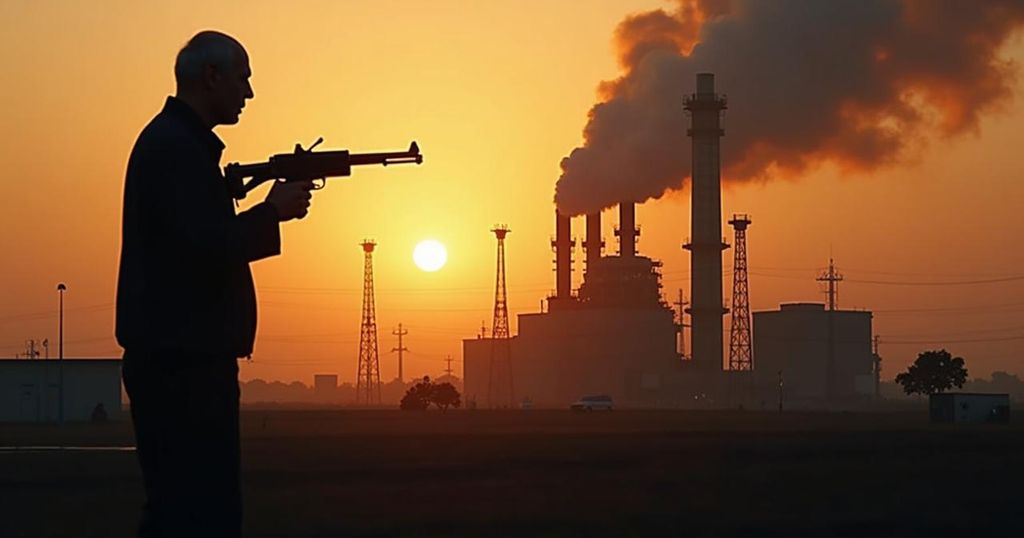Biden Opposes Israeli Strikes on Iran’s Nuclear Sites Amid Rising Tensions

President Joe Biden has rejected the idea of supporting Israeli strikes on Iran’s nuclear facilities following a missile attack from Iran on Israel. Biden stated that any Israeli retaliation should be proportional. The geopolitical situation is delicate, with fears of escalation in the Middle East as analysts warn that now may be a critical moment for Israel to address perceived threats from Iran.
United States President Joe Biden has firmly expressed his opposition to any Israeli strikes on Iran’s nuclear facilities in retaliation for Tehran’s recent missile attacks on Israel. During a press conference, he explicitly stated, “the answer is no” when questioned about his potential support for such actions. This stance was articulated following Iran’s launch of approximately 180 ballistic missiles against Israel, marking its second assault on the nation since April of this year. In response, Israeli Prime Minister Benjamin Netanyahu has vowed that Iran will face consequences for its actions; however, reports indicate the missile attacks did not result in significant casualties within Israel, leading to the death of one Palestinian in the occupied West Bank instead. Analysts have warned of the heightened risk of an Israeli attack on Iran’s nuclear program, especially now that Iran’s ally Hezbollah is reportedly weakened. Ali Vaez, the director of the Iran Project at the International Crisis Group, noted the presence of U.S. forces in the region providing support to Israel, potentially creating a historic opportunity for Israel to address its long-standing concerns about Iran’s nuclear capabilities. Former Israeli Prime Minister Naftali Bennett urged immediate action against Iran’s nuclear program, asserting, “We have the justification. We have the tools.” President Biden emphasized that any retaliatory measures from Israel should remain “proportional,” a sentiment echoed by other leaders from the G7 nations, which includes Canada, France, Germany, Italy, Japan, and the United Kingdom. Furthermore, the White House disclosed ongoing discussions among G7 leaders concerning potential new sanctions against Iran. In the context of this escalation, Iranian officials justified the missile strikes as retaliation for the assassination of key figures allied with Iran, including the Hamas leader Ismail Haniyeh. Although Iran’s President Masoud Pezeshkian asserted that the attack was deserved, he also communicated that Iran does not seek a war with Israel. Moreover, Iran’s military has warned of “vast destruction” should Israel retaliate. The ongoing hostilities between these two powerful nations, set against the backdrop of the ongoing conflicts in Gaza and Lebanon, have raised alarm about the prospect of a wider regional conflict. Political analyst Marwan Bishara warned, “The idea of Iran and Israel going after each other under the auspices of the United States will burn everyone in the Middle East and beyond.”
The conflict between Iran and Israel has escalated recently, particularly in light of Iran’s missile attacks on Israel, which are seen as direct acts of aggression amidst ongoing tensions. The potential for Israeli military strikes on Iranian nuclear facilities adds another layer of complexity to the geopolitical landscape, especially given the historical context of Israeli concerns over Iran’s nuclear ambitions. This situation is exacerbated by the regional dynamics involving Iranian proxy forces, such as Hezbollah, and the broader implications of U.S. support for Israel in these conflicts.
In summary, President Biden’s unequivocal refusal to support Israeli military strikes on Iran’s nuclear sites comes amidst rising tensions following Iran’s missile barrage on Israel. With calls for a proportional response and increased international dialogue regarding potential sanctions, the U.S. remains committed to supporting its ally while navigating the complexities of Middle East geopolitics, where any miscalculation could lead to broader conflict.
Original Source: www.aljazeera.com








